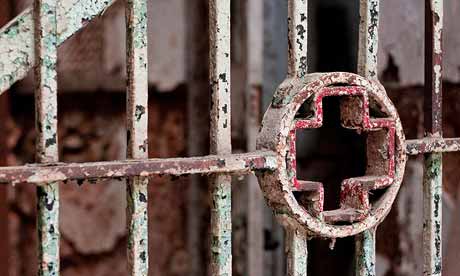
A trip to warmer climes used to be a cure for all ills, but the financial reality of modern medical care is making overseas treatment a very real alternative
I sometimes joke with my patients that what I really need to prescribe is a holiday in the Caribbean. And why not? What better when you’re a bit stressed than to take off for a relaxing retreat? People often travel in hope of health improvement. It’s not a new idea – before antibiotics, patients sought mountain air to cure TB or warmer climes to ease arthritis.
Today, a significant number of people travel in search of cheap operations. Approximately 100,000 British patients travelled abroad for medical or dental treatment in 2007. Over 150,000 people from around the world travel to India each year for treatment in one of 80 accredited conventional and Ayurvedic hospitals. With recent health-funding crises, it’s difficult (if not impossible) to get NHS operations that are deemed non-urgent.
Procedures including stripping varicose veins, removing moles, some hernia repairs, some infertility treatment, cosmetic surgery and liposuction can be arranged privately in the UK, but this can be prohibitively expensive.
Time is another issue. An Indian friend of mine became frustrated with long waits to see an orthopaedic consultant and for NHS physiotherapy. He took himself off to Delhi; there he spent ten days in an Ayurvedic hospital, receiving medicines, poultices and two hours of physio a day. He came back cured.
Many countries have recognised this potential market. Tourist hospitals are being built in destinations such as Egypt and Thailand; India has a special visa category for medical tourists. I don’t think there are ethical issues around exploiting the resources of poorer countries; indeed, in some cases, wealthy foreigners fund treatment and out-reach programmes for the local poor.
Often people elect to travel for pioneering techniques. French hand surgeons, for example, have developed a new technique to correct Dupuytren’s contracture, which makes the hand unopenable. In Britain, surgeons cut through the tight fibrous bands under general anaesthetic, while French surgeons manage the release with a needle under local anaesthetic.
Laser eye surgery and dental procedures can be cheaper overseas (see table): it is said to cost less to fly to Florida, arrange a dental implant and fly back, than to have the treatment in your home town. Many people travel to Eastern Europe for dental work.
Imagine you’re booked in for a knee ligament reconstruction that will keep you off work for a month. Recovering somewhere sunny sounds like the perfect solution to post-op boredom. Certain places may offer pleasant yet different rehab in the form of oriental massage, and basic nursing care might be more affordable too.
However, anyone pursuing the idea of overseas convalescence must do their homework. Will you be able to fly with your leg sticking out in the aisle of the plane? Will your travel insurance cover you? Are you aware that operations – particularly on the leg – increase your risk of DVT?
Recovery takes time: ordinary activities, let alone travel, can be challenging. In your temporarily disabled state, will you be able to get around at your destination, or even manage the loo? Who will change your dressings? Who will keep you company? Will you have access to an expert physiotherapist at your beach hotel?
Excellent care is available worldwide but language and health culture can be isolating. In Britain doctors offer you a consultation, which should involve negotiation of any treatment after proper information-giving. Globally, not all doctors work this way.
Colleagues have told me about the ‘ball and chain’ approach where, on admission, a patient is attached to an intravenous line that is not removed until payment is made. Paramedics employed by insurers often come to the rescue.
Think about the worst possible scenario. What happens if there is some complication from the surgery or treatment? Any such snags will involve additional cost and may compromise return travel arrangements. Doctors back home should treat complications presented to them but will they know what has been done and how? British dentists, too, are less than enthusiastic about their patients shopping around and may not want to treat complications.
There are savings to be made by getting treated overseas but there may be hidden costs. It is madness to travel uninsured and without considerable research.
Dr Jane Wilson-Howarth’s new memoir A Glimpse of Eternal Snows is out now; see www.wilson-howarth.com